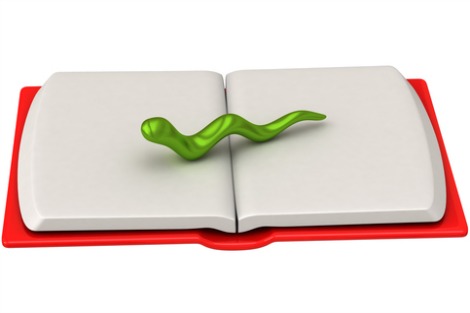1 Comment
Gillian Bouras | 16 July 2013
 In pre-Kindle days book-lovers, perhaps fearing the fate of the bibliophile who was crushed to death by his own collapsing bookshelves, nerved themselves , very occasionally, to the torture of a cull. Torture, yes, for getting rid of books, as a dear friend remarks, is similar to peeling off a layer of skin.
In pre-Kindle days book-lovers, perhaps fearing the fate of the bibliophile who was crushed to death by his own collapsing bookshelves, nerved themselves , very occasionally, to the torture of a cull. Torture, yes, for getting rid of books, as a dear friend remarks, is similar to peeling off a layer of skin.
I remember my parents once deciding that Something Had to be Done about their fairly unmanageable and catholic collection of books. My father nobly volunteered, and sorted through about a thousand volumes, from which number he selected six he thought he could part with: just. Then my mother happened along, and exclaimed, ‘Good Heavens, Bill, we can’t throw out these three!’
I have recently had to Do Something about a book cull; what agony it has been. And all the while wise words haunted me. A life ruined by literature : Anita Brookner. People tell me that life is the thing, but I prefer reading : Logan Pearsall Smith. A book is like a garden in your pocket : Chinese proverb.
When I, a Melburnian, knew that I was going to spend six months in Greece on a holiday that subsequently got well out of hand, as decades later I am still here, I arranged for a trunk of books to be sent over: I knew there were no libraries where I was going, and that there were would be very few English books available. My illiterate mother-in-law was stupefied, but rallied quickly. ‘So many books,’ she said. ‘Can’t you sell some of them?’
I did not answer, but should have known she would react like this, as during her one visit to Melbourne she had told me roundly that too much thiavasma , reading, was undoubtedly the cause of my prematurely grey hair and my need to wear glasses.
Although many of my ancestors were also illiterate, once others got to Australia and acquired some education, there was no stopping them: they had caught the reading bug and never became interested in finding an antidote . Dickens was a particular favourite, and legend has it that my mother’s maternal grandfather Robert used to read the current volume aloud to his wife Fan in bed at night. She, poor woman, had eight children, and was understandably drooping with fatigue at the end of each day. Robert didn’t care: the reading was the thing.
‘You’re not listening, Fan,’ he is supposed to have said fairly regularly.
‘Yes I am, Robert.’
‘Well then, what was the last word?’
My maternal grandmother, Robert’s daughter, had her own strong opinions, and declared Dickens’ Barnaby Rudge to be a dreadful book. She much preferred reading her Schofield Reference Bible , so much so that it often travelled on the top layer of her shopping basket. She certainly read a chunk of Holy Writ every day. I, too, have a similar Bible. I cannot claim to read a chunk every day, but there The Good Book sits on my shelf, alongside the Scottish Psalter and Church Hymnary that belonged to my other grandmother.
These are volumes I will never part with. The longer you have a book, the harder it is to separate from it. It doesn’t matter whether it is falling apart, or how badly foxed it is, or how badly the acid-based paper is faring: such a book is of your life. Other volumes I will never throw out are my copies of the old Victorian Second and Fifth Grade Readers, for every so often I have to remember the Hobyahs skip, skip, skipping on the ends of their toes, and re-read Frank Hudson’s Pioneers . ‘We are the Old-world people / Ours were the hearts to dare.’
I estimate I’ve now disposed of about 300 books in one way or another, and I don’t feel the better or the lighter for it. Instead I feel a sense of loss: part of the epidermis has gone. However, I’ve learned one thing. Although none of us knows where we’re going, I will recognise Hell when I see it: I’ll be throwing out books for all eternity. If I should be so lucky as to make it to Heaven, I’ll know it, too: at least part of it will be an endless library. With not a Kindle in sight.
 Gillian Bouras is an Australian writer who has been based in Greece for 30 years. She has had nine books published. Her most recent is No Time For Dances . Her latest, Seeing and Believing , is appearing in instalments on her website.
Gillian Bouras is an Australian writer who has been based in Greece for 30 years. She has had nine books published. Her most recent is No Time For Dances . Her latest, Seeing and Believing , is appearing in instalments on her website.
Bookworm image from Shutterstock
Comments
Submitted feedback is moderated. Email is requested for identification purposes only.
Submitted comments
Pam 16 July 2013Ah, another bibliophile. I salute you Gillian! My husband offered to buy me a Kindle for a significant birthday not so long ago and I blanched – what an audacity. He never spoke of it again. I cannot cull, I can only dust. Fortunately, as children have left home I’ve more bookcases available. Heavenly article, thanks.
No comments:
Post a Comment